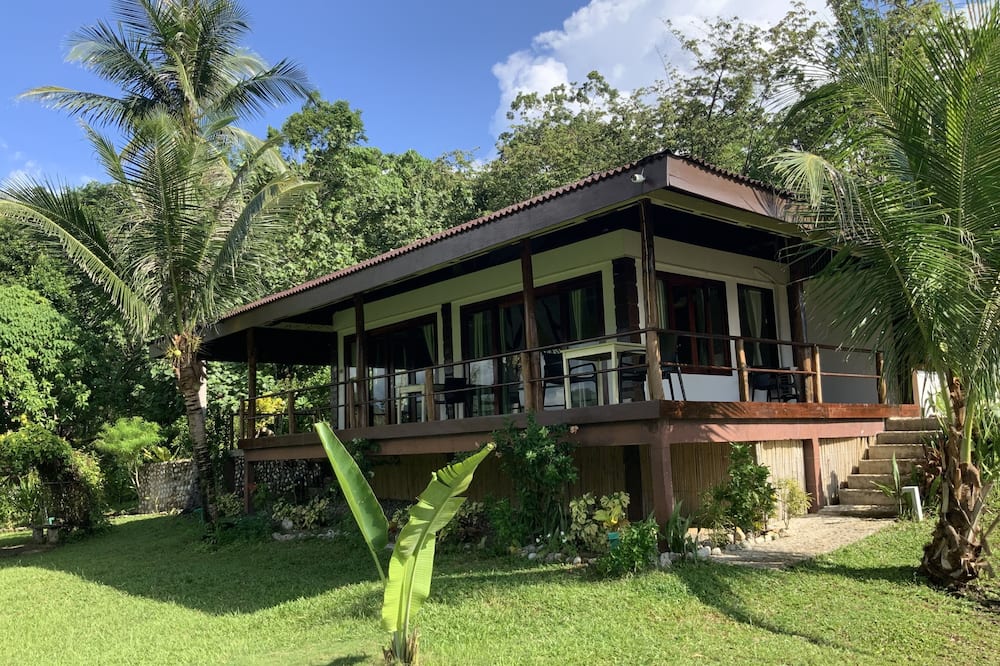To extend a stay in the Philippines as a foreigner, apply for a visa extension (Tourist Visa Extension, LSVVE, or SRRV) at a Bureau of Immigration office before the current visa expires. Ensure timely submission of required documents and payment of necessary fees to avoid penalties or deportation.

Visa Options for Extended Stay
When considering an extended stay in the Philippines, several visa options are available.
Tourist Visa Extension
Tourist Visa Extension allows visitors to extend their stay in the Philippines beyond the initial 30 days.
- Requirements: Passport with at least 6 months validity, proof of sufficient funds, and completed application form
- Duration: Extensions can be granted for an additional 29 days up to 36 months in total
- Where to apply: Bureau of Immigration offices
- Fees: Vary depending on the length of extension. Generally ranges from $50 to $100
Long-Stay Visitor Visa Extension (LSVVE)
- Requirements: Passport with at least 6 months validity, proof of financial capacity, medical clearance, and National Bureau of Investigation (NBI) clearance
- Duration: Initially granted for six months, and can be extended
- Where to apply: Bureau of Immigration main office or authorized field offices
- Fees: Vary, detailed fees can be checked at the official Bureau of Immigration website
Special Resident Retiree’s Visa (SRRV)
The SRRV is a special non-immigrant visa for foreign nationals who would like to make the Philippines their second home or investment destination.
- Requirements: Must be at least 35 years old, deposit a certain amount in a Philippine bank (amount varies), and have a monthly pension
- Duration: Indefinite, as long as the required bank deposit is maintained
- Benefits: Multiple entry privileges, exemption from Customs duties and taxes for the importation of personal goods, and other incentives
Quota Immigrant Visa
- Requirements: Must be at least 21 years old, financially capable, and possess qualifications beneficial to the Philippines
- Duration: Indefinite, as it leads to permanent residency
- Where to apply: Bureau of Immigration main office
- Fees: Vary, detailed fees can be checked at the official Bureau of Immigration website
Application Process
The application process for an extended visa in the Philippines involves multiple steps, each with its specific requirements. Here’s a breakdown of what you need to know.
Requirements for Visa Application
To ensure a smooth application, you need to prepare the following:
- Valid Passport: Must have at least 6 months of validity from the intended date of travel.
- Completed Application Form: Ensure all fields are filled out correctly.
- Recent Passport Photos: Typically, two are required, though this can vary depending on the visa type.
- Proof of Financial Capacity: This could be bank statements, pay slips, or a letter from a sponsor.
- Additional documents: Depending on the visa type, such as medical certificates, police clearances, or letters of invitation.
Where to Apply
- Bureau of Immigration Main Office: Located in Intramuros, Manila. It’s the central office for most visa applications.
- Regional Immigration Offices: Located in key cities around the Philippines, ideal for those outside Manila.
- Philippine Embassies and Consulates: For those applying from outside the Philippines.
Step-by-step Guide to Application
- Collect All Required Documents: Make sure they are current and valid.
- Fill Out the Application Form: Ensure all details match your supporting documents.
- Pay the Application Fee: This is usually done at the Bureau of Immigration office or at designated banks.
- Submit Your Application: Depending on where you’re applying, this could be at a regional office, the main office in Manila, or an embassy/consulate.
- Attend an Interview: Not always required, but for certain visa types or in cases where further information is needed.
- Wait for Visa Approval: Processing times vary, but you will usually be informed by mail or phone.
- Collect Your Visa: If approved, ensure you understand any conditions or requirements associated with your visa type.
Costs and Fees Associated
- Application Fees: These vary depending on the visa type. For instance, a tourist visa extension might cost between $50 and $100.
- Additional Charges: There may be fees for fingerprinting, document processing, or other administrative tasks.
- Penalty Fees: In case of overstaying or breaching visa conditions.
Accommodation Options
When planning an extended stay in the Philippines, finding the right accommodation is crucial. Various options cater to different needs and budgets, including long-term rentals and property ownership.
Long-term Rental Options
Renting a property can be a flexible and convenient solution for foreigners staying in the Philippines for an extended period.
- Apartments and Condominiums: These are widely available in cities and popular expat areas. They often come furnished or semi-furnished.
- Houses and Townhouses: Ideal for families or those who prefer more space and privacy.
- Lease Contracts: Typically, a one-year contract is standard, but shorter or longer terms may be negotiable.
- Deposits and Advance Rent: It’s common to pay one month’s rent in advance and a security deposit equivalent to two months’ rent.
Property Ownership for Foreigners
- Condominium Units: Foreigners can own up to 40% of a condominium project in the Philippines.
- Leasing Land: A foreigner can lease land for an initial period of up to 50 years, and this lease is renewable.
- Forming a Corporation: Foreigners can own 40% of a corporation in the Philippines, and this corporation can own land.
Key Locations for Long-term Stay
Choosing where to stay in the Philippines is just as important as choosing the type of accommodation.
- Metro Manila: The nation’s capital and economic hub, with a wide range of accommodations and vibrant expat communities.
- Cebu City: Known for its beaches and lower cost of living compared to Manila, yet still highly urbanized.
- Davao City: A growing city in Mindanao with a reputation for being clean and safe.
- Popular Beach Locations: Such as Boracay, Palawan, and Bohol, which offer a more relaxed lifestyle.

Employment and Business Opportunities
The Philippines presents diverse employment and business opportunities for foreigners, due to its growing economy and strategic location in Southeast Asia. English is widely spoken, which is a plus for native English speakers or those fluent in the language.
Work Permits and Employment Visas
Before you can work in the Philippines, you typically need an employment visa and a work permit.
- Alien Employment Permit (AEP): Issued by the Department of Labor and Employment, this permit is mandatory for foreigners working in the Philippines. It proves that there are no local citizens who can do the job.
- 9(G) Working Visa: This is for foreigners employed in the Philippines. The employer often helps to process this visa.
- Requirements: Employment contract, AEP, tax identification number, and additional documents depending on your job role.
Starting a Business in the Philippines
Foreigners can engage in trade and establish a business in the Philippines, although with some restrictions.
- Select a Business Structure: Options include sole proprietorship, partnership, corporation, or a branch office. For corporations, foreign ownership can be up to 100% depending on the industry.
- Register the Business: You must register with the Securities and Exchange Commission (SEC), Bureau of Internal Revenue (BIR), and other relevant government agencies.
- Secure Necessary Permits and Licenses: This includes local government permits, BIR registration, and special permits depending on the nature of the business.
Popular Job Industries for Foreigners
There are several industries in the Philippines where foreigners often find opportunities, these include:
- Information Technology (IT) and Business Process Outsourcing (BPO): One of the largest and fastest-growing sectors in the country.
- Education and Language Instruction: English teachers, especially for ESL (English as a Second Language), are in demand.
- Tourism and Hospitality: With its beautiful beaches and tourist spots, the tourism industry often seeks foreign expertise.
- Non-Governmental Organizations (NGOs): There are many international NGOs operating in the Philippines.
Renewal and Exit Procedures
Understanding the renewal and exit procedures is crucial for any foreigner planning an extended stay in the Philippines. This includes knowing how to extend your stay legally, exit clearance requirements, and what to do if you’ve overstayed your visa.
Extending Your Stay Further
If you want to stay longer than your visa allows, you must apply for an extension at the Bureau of Immigration. Here’s how to proceed:
- Assess Your Options: First, evaluate the type of extension you need based on your visa.
- Gather Required Documents: Typically, this includes your passport, current visa, and proof of financial sustainability.
- Apply at the Bureau of Immigration: Submit your application and required documents to the nearest Bureau of Immigration office.
- Pay Necessary Fees: There will be fees associated with extending your visa. The cost varies depending on the type and length of extension.
Exit Clearance and Requirements
When you’re ready to leave the Philippines after a long-term stay, you’ll likely need to secure an exit clearance. Here’s what you need to know:
- Obtain an Emigration Clearance Certificate (ECC): This document is required for those who have stayed in the Philippines for more than six months. It is issued by the Bureau of Immigration.
- Settle All Dues: Ensure that you have paid all necessary fees, taxes, and any penalties if applicable.
- Visit the Immigration Office: Submit your ECC application at least 72 hours before your flight.
Overstaying Penalties and Resolution
Overstaying your visa in the Philippines is a serious matter and attracts penalties:
- Fines: Overstaying results in accumulating fines for each day you stay beyond your visa validity. The exact amount can vary.
- Legal Consequences: In extreme cases of overstaying, legal action can be taken, which might involve deportation.
- Resolution Process: If you have overstayed, it’s essential to visit the Bureau of Immigration as soon as possible.